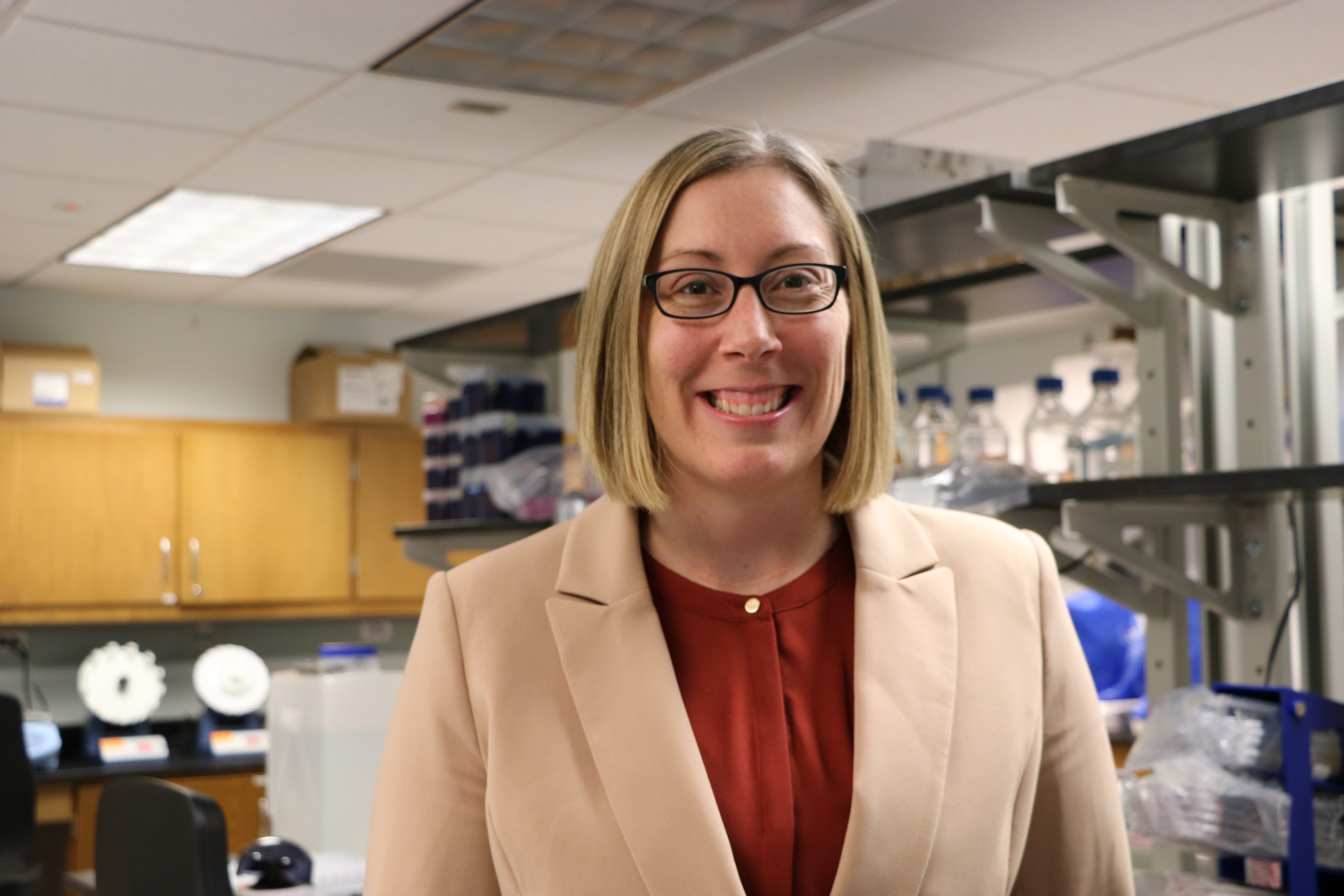
Rebecca Wachs
Assistant Professor of Biological Systems Engineering
Dr. Rebecca "Becky" Wachs is a biomedical researcher within Biological Systems Engineering. She received her bachelor's in mechanical engineering from Worcester Polytechnic Institute and her master's and doctoral degrees in biomedical engineering from Rensselaer Polytechnic Institute. Becky also worked in industry at Carl Zeiss Microimaging, Inc. and RTI Surgical, Inc. She started with the department in 2017 after completing a postdoctoral research position at the University of Florida.
Becky conducts research primarily in two areas of biomaterials: tissue engineering of the intervertebral disc and low back pain management. In her first area of research, Becky develops special biomaterials called decellularized tissue matrices to repair tissue scaffolding for persons whose intervertebral discs have deteriorated due to age or disease states. The decellularized tissue matrices must be modified by removing cells and antigens that would cause an immune response so that they won't be rejected during the implant process. The healthy matrices will potentially rejuvenate local cells and shift the immune response toward a healthier state.
Low back pain management is Becky's second area of research. This research focuses on treating intervertebral discs into which nerves have grown. If left untreated, these painful nerves can be stimulated by the inflamed environment and oxidative stress, which can cause chronic, permanent pain for patients. The research seeks to cause nerves to retract and prevent nerve re-growth within the disc, and to prevent nerves from being chronically stimulated by inflammation and oxidative stress. The team utilizes biomaterials to modulate nerve growth and antioxidants to reduce inflammation and oxidative stress.
The Wachs lab develops biomaterials for these two areas of orthopedic research. They characterize the biomaterial properties and build models to see how the biomaterials perform. 3D cultures of tissues are created to mimic the low back pain environment and are then studied for their ability to support cell growth and screen antioxidants and anti-inflammatories to alleviate pain.
The lab collaborates with surgeons at UNMC, faculty in the Redox Biology Center, and the Nebraska Center for Integrated Biomolecular Communication to develop new technologies and tissues that can later be tested for use in patients. Future opportunities for collaborations exist in studying immunology with the School of Biological Sciences, antioxidants with the Kievit and Subbiah labs, and electrophysiology with the Cellular Physiology Department at UNMC.
Becky hopes to improve the quality of life of persons living with chronic pain or those who exhibit naturally occurring degeneration in tissue and discs at greater numbers, such as the elderly. Becky gives back to the UNL and Lincoln communities by providing seminars on osteoarthritis and degenerative disc disease at the Osher Lifelong Learning Institute. Her talk "Can We Grow a New Joint?" sparked excitement and engagement for this population which is greatly impacted by low back and orthopedic pain. Becky plans to develop other coursework with OLLI to improve understanding of different aspects of orthopedics, joint replacement, and disc disease.
Involvement is not just a component of Becky’s research: she also involves her students in a variety of non-research activities to encourage a team environment, a major component of how Becky approaches working with students.
"For me, it is really important to foster an environment where people want to be a team," Becky says. She and her students engage in team-building exercises and activities outside of the lab. They have gone to two escape rooms and sushi restaurants, and last week the lab went tubing down the Elkhorn River to have fun and build community.
Wachs lab students are notable not just for their social activities but for their research projects and presentations. Postdoctoral research associate Sarah Romereim delivered a rapid-fire podium talk at the Society for Biomaterials Annual Meeting this year. David Lillyman, a master’s student, received a BSE Elenore Gakemeier Swarts Graduate Student Travel Award to present his poster at the Biomedical Engineering Society meeting this October on "Development of a Decellularization Process for the Intervertebral Disc to Preserve Key Matrix Components."
Undergraduates Caleb Johnston and Logan Piening received Nebraska's Undergraduate Creative Activities and Research Experience (UCARE) awards to study "Identification of Antioxidants that will Decrease Sensory Neuron Stimulation in the Intervertebral Disc" and "Creation of an Injectable ECM for Tissue Engineering of the Intervertebral Disc" respectively.
Working in BSE has connected Becky with researchers across a broad spectrum of topics and with potential for creative collaborations across research lines. "I really like the diversity of research in BSE," she says. "It forces me to think more broadly and brainstorm outside of the box."